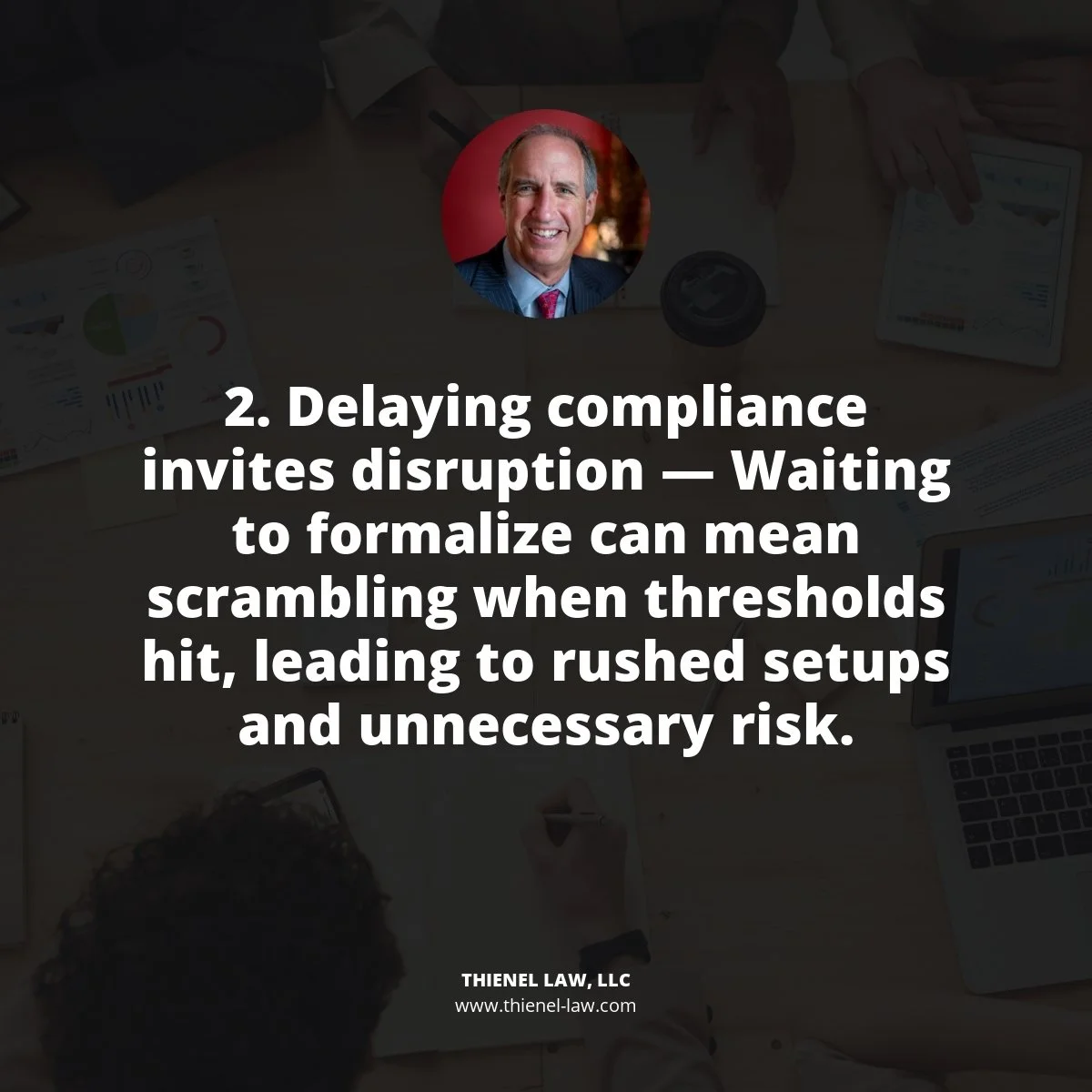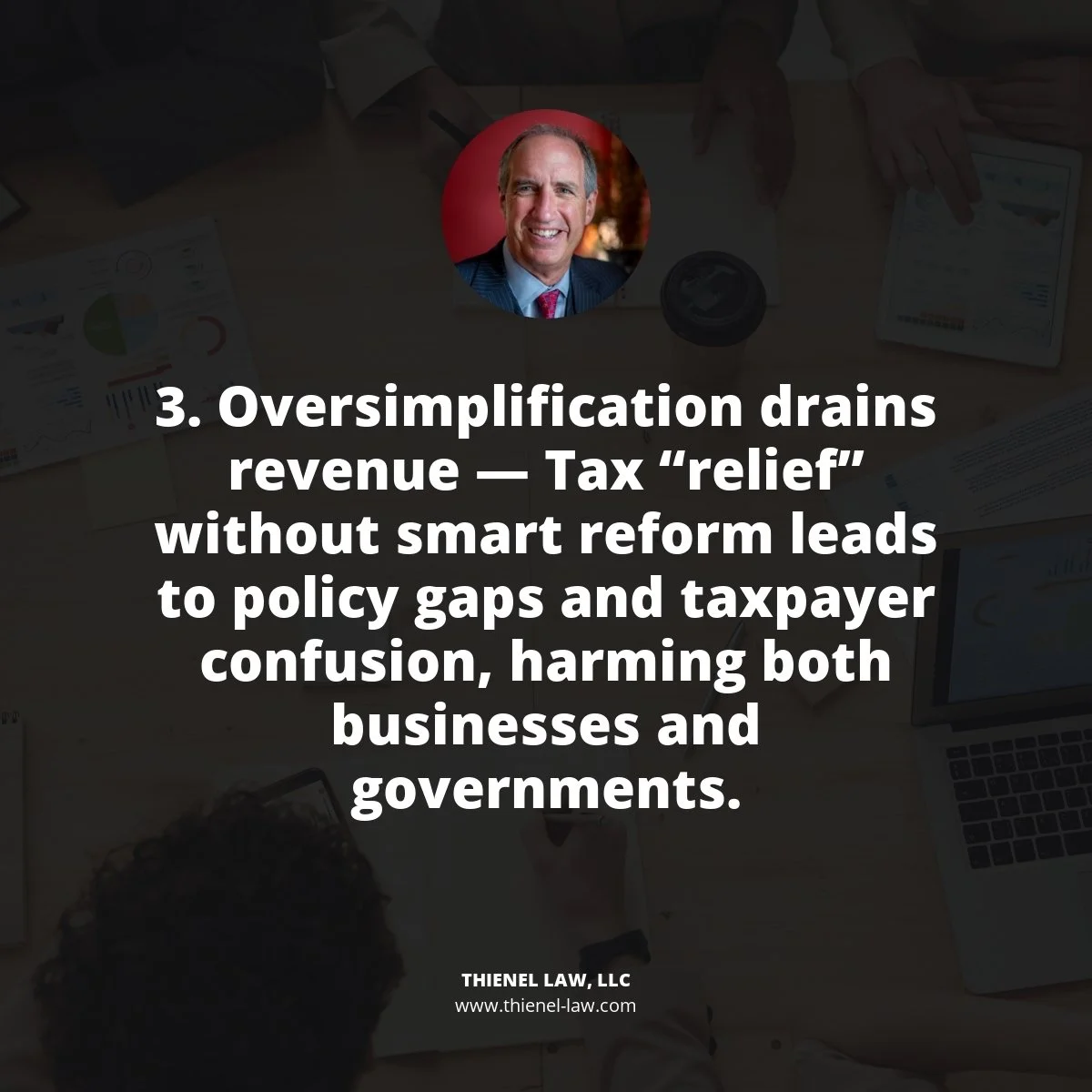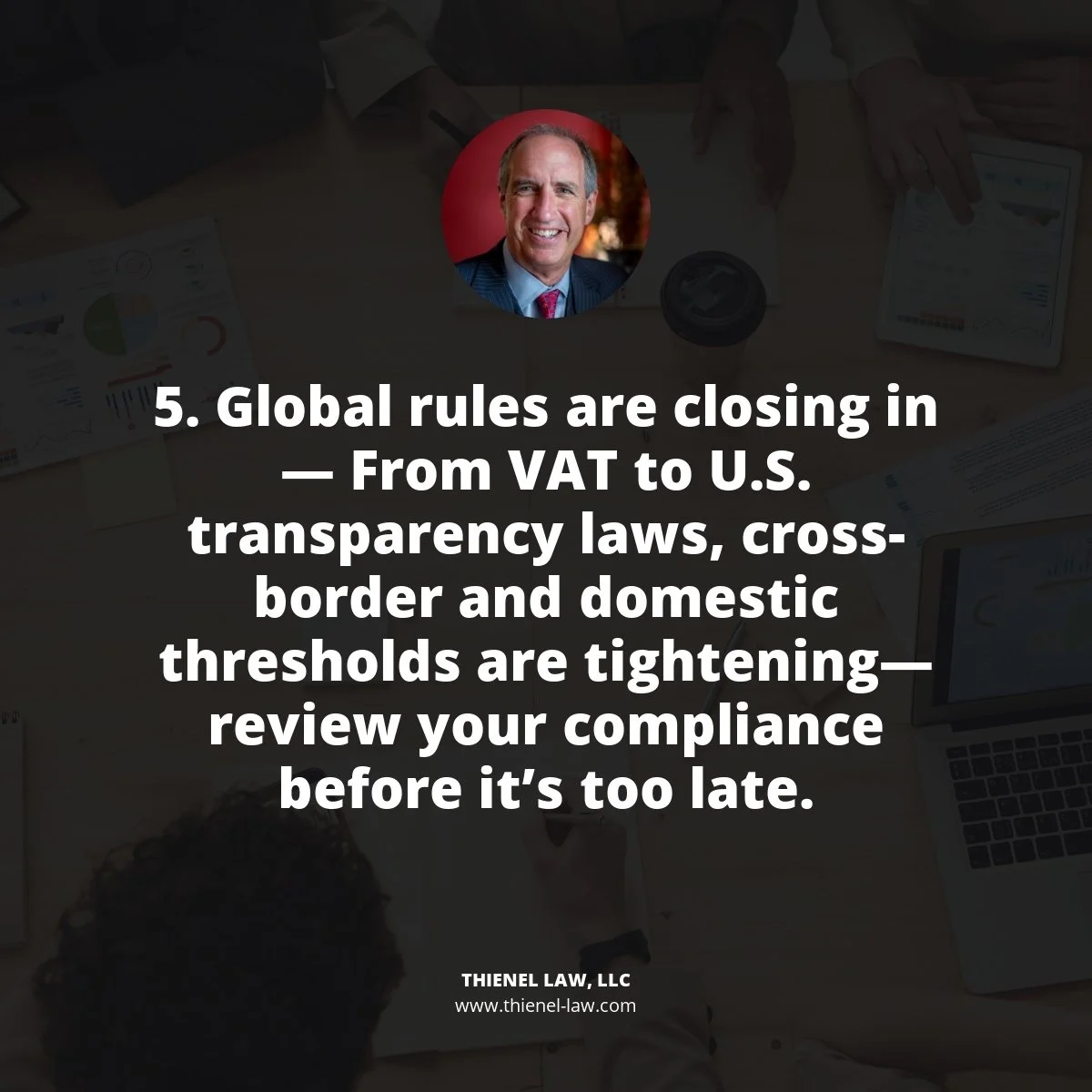How the UK's VAT Threshold Proposal Offers Lessons — and Warnings — for U.S. Business Owners
As trusted business and tax advisors to business owners, professionals, and high-net-worth individuals across Maryland, Virginia, and Washington, D.C., we regularly monitor international tax developments that may have ripple effects for our clients. A recent proposal by the United Kingdom Treasury is one such development worth noting — even from across the Atlantic.
The UK is considering raising its value-added tax (VAT) registration threshold — the point at which businesses must register for and charge VAT. While this might sound like a purely international issue, the implications extend far beyond British borders. The proposal sparks a deeper conversation about small business policy, tax efficiency, and economic growth — all central to how your business or estate planning strategy is shaped today in the DMV region.
Let's explore the consequences of the UK's proposal and what meaningful insights it offers for U.S. business owners and tax planners.
Key Takeaways
Raising the VAT registration threshold in the UK could discourage business growth and distort market behavior.
For small businesses, avoiding administrative burdens may come at the cost of long-term expansion.
Tax system design directly impacts compliance, cash flow, and productivity — abroad and here at home.
U.S. policymakers and tax professionals can use this as a reminder of how overly simplistic "relief" measures can backfire.
Professionals and high-income individuals must stay aware of shifting global and domestic tax norms to make strategic decisions.
Why This Matters for Businesses in Maryland, D.C., and Virginia
Although the U.S. tax system relies heavily on income tax rather than VAT, the underlying economic behavior affected by thresholds and regulatory complexity is universal. Many of our clients — whether running limited liability companies, partnerships, or S-corporations — regularly confront the choice between short-term simplicity and long-term scalability.
In the UK, a VAT registration threshold functions much like an income-based "cliff." Once businesses surpass a certain revenue threshold (£90,000 as of April 1, 2024), they must register for VAT — a time-consuming and often costly compliance shift.
The UK Treasury's recent proposal to raise that threshold might seem like a gift to small businesses. But in reality, it could result in more harm than good. That's a lesson worth translating to the U.S. — because similar pressures exist whenever exemptions or phase-ins are introduced.
Let's break down the practical implications.
1. High Thresholds Can Stifle Growth
At first glance, business owners applaud higher tax thresholds. The logic seems sound: fewer companies need to comply with complex regulations, which saves them time and administrative cost.
But economic evidence from the UK suggests otherwise.
When the VAT registration threshold rises, something unintended happens. Businesses deliberately limit their revenue to stay below the line — distorting natural growth. They turn down contracts, raise prices as a deterrent, or use informal arrangements to skirt registration. This "bunching" below the threshold has been documented in HM Revenue & Customs data for years.
The resulting effect: the threshold acts as a cap, not a cushion.
For a DMV-based LLC or S-Corp owner, the parallels are clear. If your business relies on avoiding a certain tax or regulation — such as self-employment tax, ACA mandates, or local business licenses — you may be sacrificing strategic opportunities in exchange for temporary convenience.
A short-term savings mindset can inhibit hiring, scaling, or establishing more robust systems.
2. Temporary Relief Can Create Long-Term Complexity
The UK Treasury frames the VAT threshold increase as a way to help small businesses by postponing the point of compliance. But pushing the pain down the road doesn't remove it altogether — it simply kicks it into a more complicated future.
Once a threshold is crossed, businesses must invest in compliance processes — from software upgrades to accounting support — seemingly overnight.
In the U.S., we see this in estate tax planning and S-Corp election strategies. Clients often ask: "Should I wait to report income until the end of the year?" or "Is it worth setting up a more complex entity right now, or should I wait until we're closer to $1 million in revenue?"
Delaying a sophisticated structure might reduce short-term hassle. But it often results in a rushed (and riskier) transition once thresholds are breached.
Whether it's the UK's VAT threshold or a U.S. IRS filing change, the lesson is the same: it is almost always better to plan proactively, rather than reactively.
3. Revenue Losses from Oversimplification
One of the UK's driving concerns behind raising the threshold is to support "small businesses." But that choice comes with a measurable cost — estimated tax revenue shortfalls, misalignments in policy, and increased enforcement as a result of distorted incentives.
Such unintended consequences are a cautionary tale for tax reform efforts across jurisdictions.
As IRS regulatory efforts grow (especially in light of increased funding and staffing), U.S. businesses may be subject to revised thresholds in 1099-K reporting, beneficial ownership disclosures, digital asset accounting, and SALT cap adjustments.
If policymakers give in to pressure for higher thresholds or sweeping exemptions, they may reduce immediate friction but also weaken the integrity of the overall system. Smart U.S. taxpayers recognize the risk: relief without reform often backfires.
In estate planning for high-net-worth individuals or succession plans for family-owned businesses, these incentives become crucial when structuring trusts, gifting strategies, or entity ownership.
4. Lessons for LLCs, Partnerships, and S-Corps
Regardless of whether your business earns $100K or $10M per year, thresholds affect you.
Key questions for business owners in the DMV region include:
Are your current structures optimized for sustainable growth — even if that means triggering new reporting requirements?
Have your advisors stress-tested your plan under different revenue and compliance scenarios?
Are you strategically tracking income, expenses, and taxes under a growth model — or simply managing to stay "safe" below the radar?
Many small business owners shy away from complexity, understandably. But there's a cost to that comfort.
At Thienel Law, we counsel clients on building efficient structures not just to minimize tax in the moment, but to allow scalable, legally sound operations built to withstand growth.
An S-Corp might yield simplicity early on — but without a compensation strategy or retirement plan integration, it could limit future options. Similarly, an LLC taxed as a partnership might seem easiest to manage — until it comes time to raise capital or transfer ownership. These choices echo the VAT threshold debate.
5. Consider Cross-Border and U.S. Parallels
For clients with international interests — whether investments in European businesses, offshore trusts, or non-resident family members — this UK VAT development may be a policy canary in a coalmine.
We are already seeing increased scrutiny by U.S. regulators on beneficial ownership (through the Corporate Transparency Act), passive foreign investment companies (PFICs), and foreign bank account reporting (FBAR). The VAT debate hints that governments worldwide are reconsidering how much simplification they can afford — and at what revenue cost.
For clients with international exposure or operations, now is the time to examine filings, thresholds, and documentation. If your entity operates abroad (or holds foreign revenue), compliance rules that sound benign today may suddenly change as governments come up short.
Unique Insight: Policy Simplicity Doesn't Equal Economic Efficiency
The VAT debate underscores an important truth: making a tax system "simpler" doesn't automatically make it better. Real economic efficiency comes from well-aligned incentives, minimal distortion, and transparent compliance regimes.
When businesses manipulate activity to avoid a tax cliff — whether in the UK or the U.S. — something critical is lost. Innovation, long-term strategy, and professionalism give way to short-term avoidance. That behavior becomes embedded in culture.
The takeaway for our clients is clear: simplicity is good—until it starts holding you back.
Practical Takeaways for DMV Business Owners
So what actions should you take now? Here's what we recommend to our clients:
Have your tax and business structures reviewed annually — don't wait until you hit a threshold.
Question whether "simple" today is still strategic tomorrow.
Think in terms of milestones: will your current structure serve you well at $200K, $500K, or $2M in revenue?
If international exposure plays a role in your estate or business plan, ensure foreign compliance and reporting are built in early.
We're Here to Help
Tax policy changes abroad may seem remote, but for savvy business owners and professionals in Maryland, D.C., and Virginia, they contain valuable lessons. Growth comes with complexity—and the way you manage that complexity defines your risk and reward.
If you're unsure how this applies to your business or personal situation, we're here to help. Schedule a consultation with Steve Thienel to get advice tailored to your goals.
We'll help you create a structure that works not just for this fiscal year — but for the future you're building.






